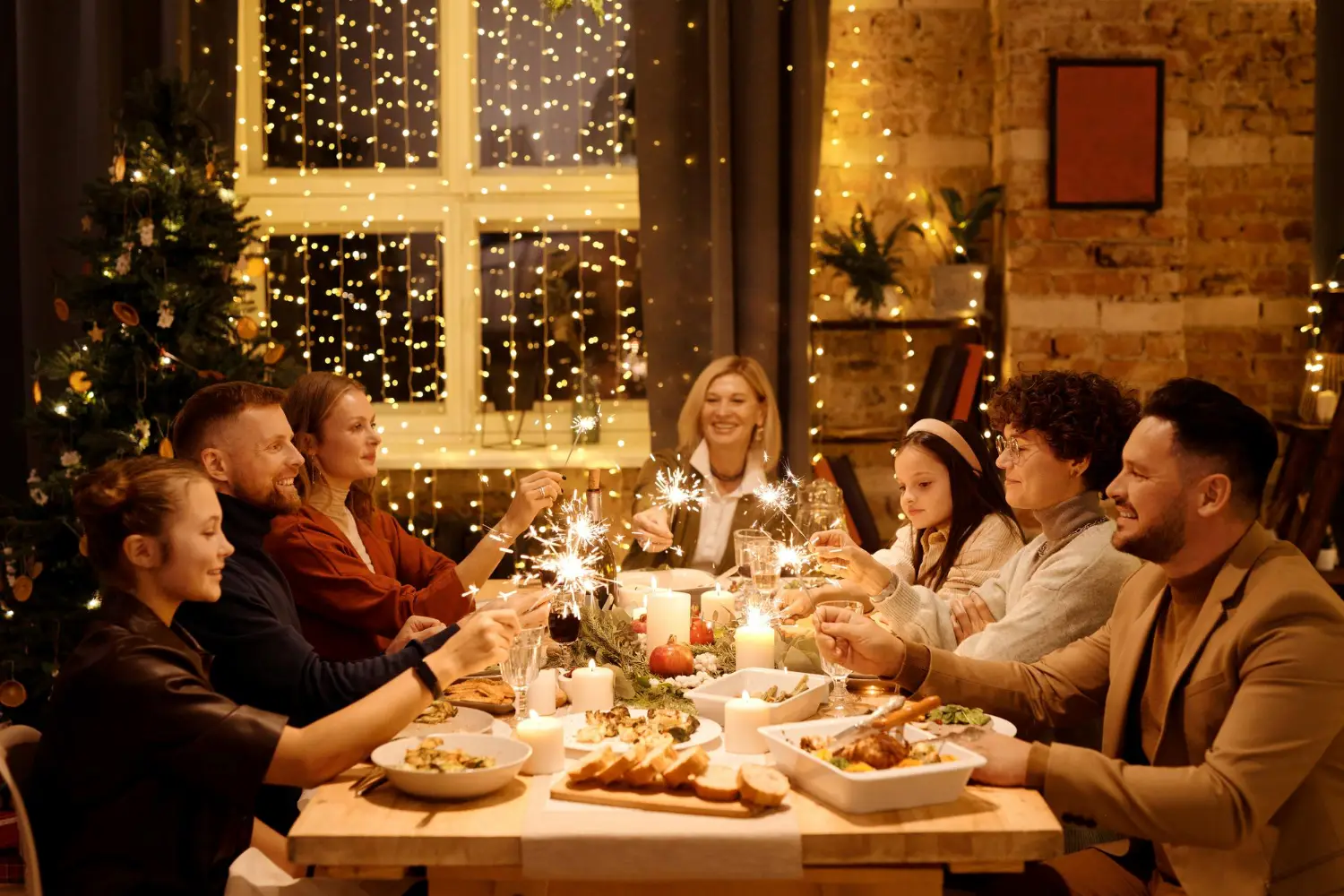
You feel it around noon when shutters start rolling down: Berlin is done talking. December 24 — Heiligabend (Holy Evening) — is where the season actually happens. Families dress up. Rooms are closed off like backstage. Die Bescherung (the gift exchange) happens after dark, then the city exhales into a hush you can hear.
Heiligabend is engineered for intimacy first. The private, emotional peak is the 24th; December 25–26 (1. & 2. Weihnachtsfeiertag) are for the wider orbit — longer tables, slower lunches, the cousin who still owes you a message. Call it emotional sequencing. The order matters.
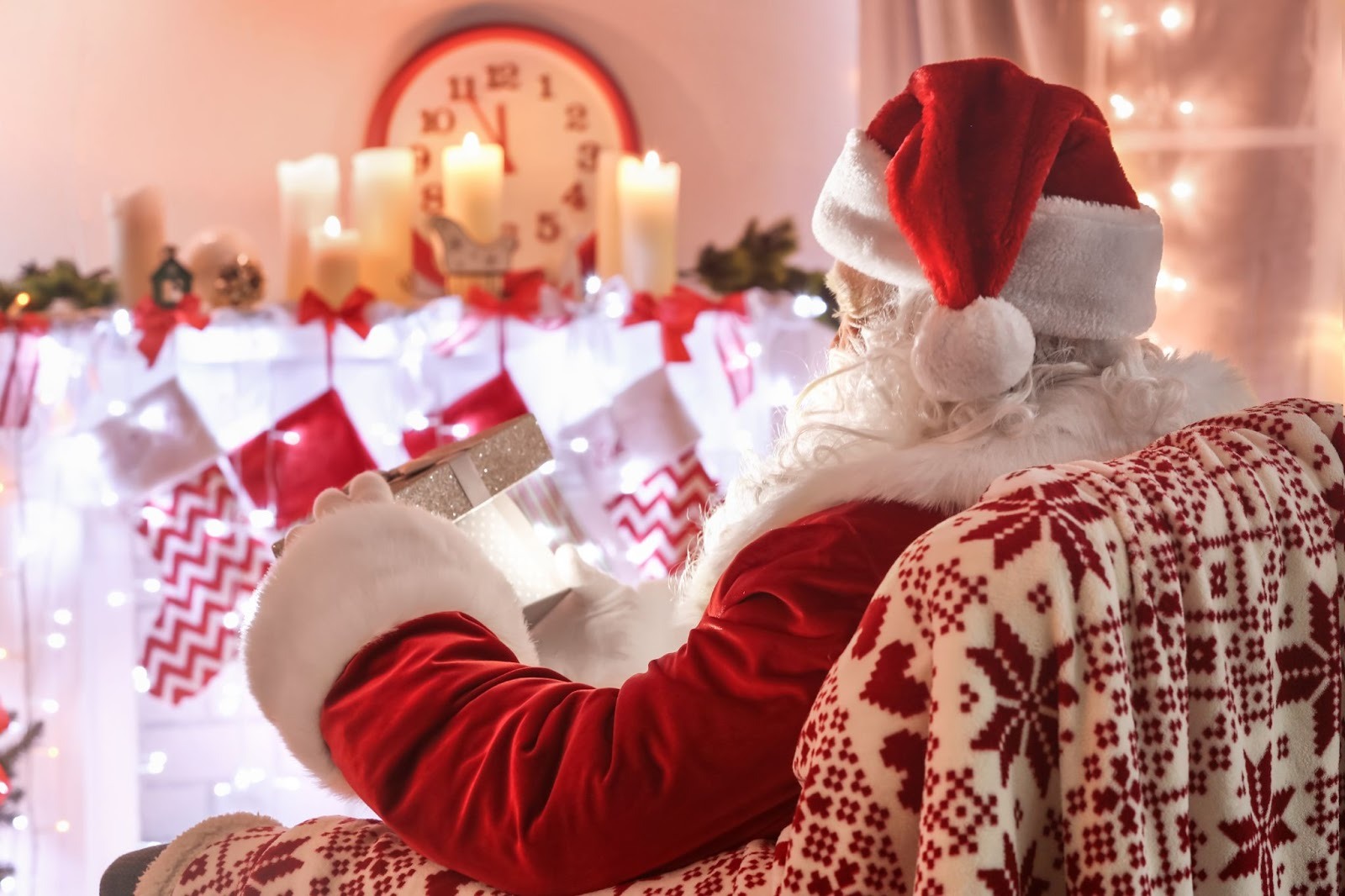
Finish every errand before 12:00 and protect the evening ritual window like your reputation depends on it (it does). If you’re still learning how to time your days around Germany’s cold season logic, read our Berlin Winter Survival Guide for a sanity check on what “early” really means here.
Then, on December 6 (Nikolaus) drops small treats into polished shoes, defusing kid energy early while preserving the big feelings for the 24th. Good design, not coincidence. For a deeper dive into Germany’s Christmas vocabulary and customs, see our German Holiday Guide 2025.

The Wohnzimmer (living room) goes off-limits. A detail-obsessed adult is in there calibrating wonder: real candles, the wooden Weihnachtspyramide humming, gifts aligned like a thesis statement. Some families hang a tiny spider ornament for luck. You notice it; you don’t narrate it.
Dress code is respectful formal. Think quiet chic, not novelty knit. Dark midi, sharp blazer, nice loafers. This is ritual, not an office party.
A Glocke rings. Translation: the Christkind or Weihnachtsmann has “just left.” Only then do you enter: pine, beeswax, heat radiating from a forest of tiny flames. No peeking before. No logistics questions. The shared performance of awe is the point.
Households toggle the order of dinner and gifts, but the spine holds: simple dinner → Bescherung (public joy) → Christmette for those who attend. Even secular expats go once; candlelight makes everyone monastic for an hour.

Germany’s map is a myth map, too. Christkind (angelic “Christ Child”) rules much of the Catholic South/West. Weihnachtsmann (Father Christmas) is common across the Protestant/Northern map. St. Nikolaus is December 6 only. Different day, different vibe.
Pro move: ask your hosts privately which figure visits. Mislabeling the magic in front of kids won’t ruin Christmas, but it will ruin your credibility.
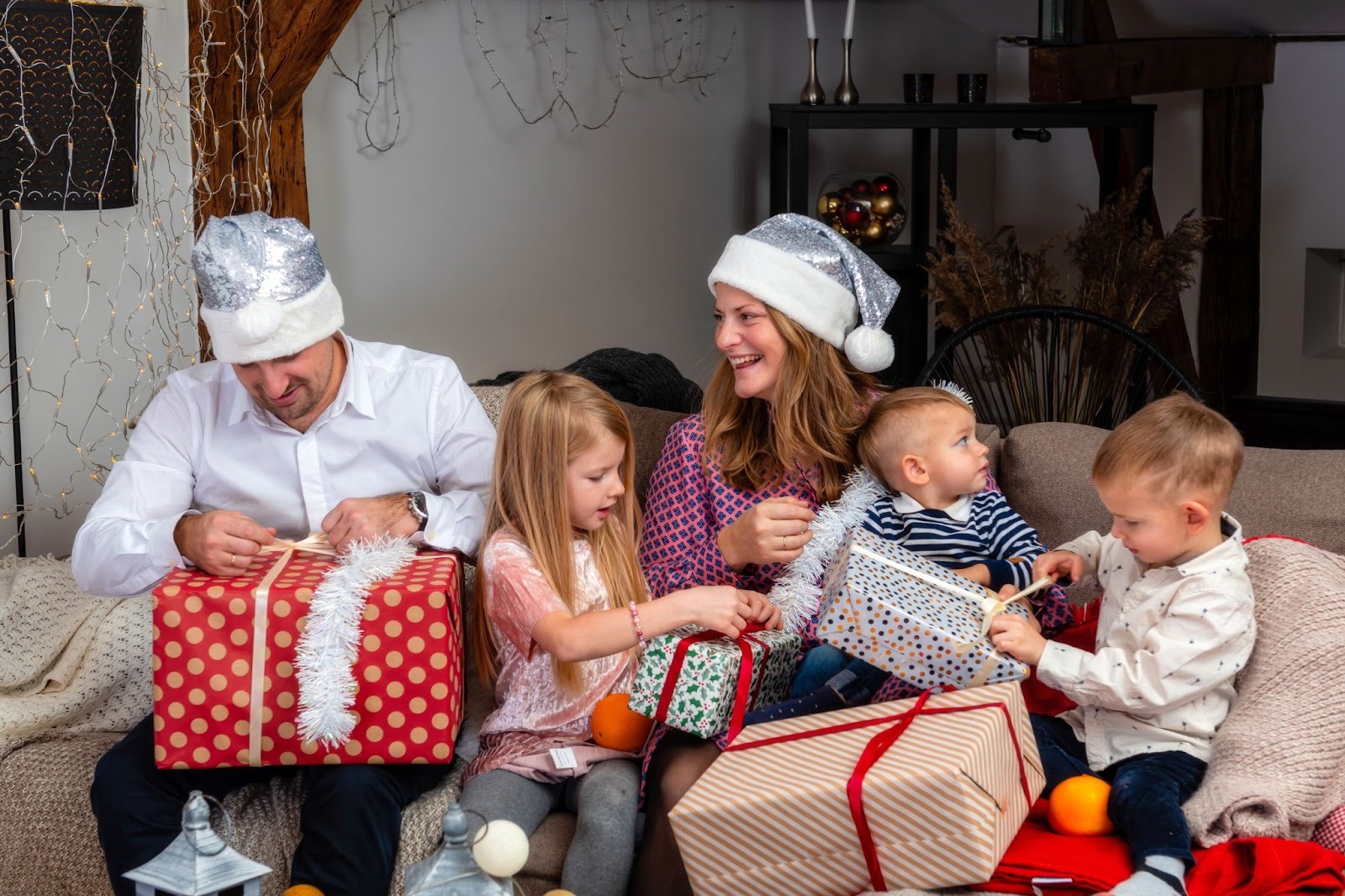
This is where expats blow it. In Germany, you open your gift immediately. The ritual is public, and gratitude is visible. No “I’ll save it for later,” no museum face. If understatement is your brand, park it for one evening. Read the card. Admire the ribbon. Say something real. Let people see that you see them.
Side note: keep fabric and hair away from flames. Germany does candlelit trees; your scarf doesn’t need to participate.
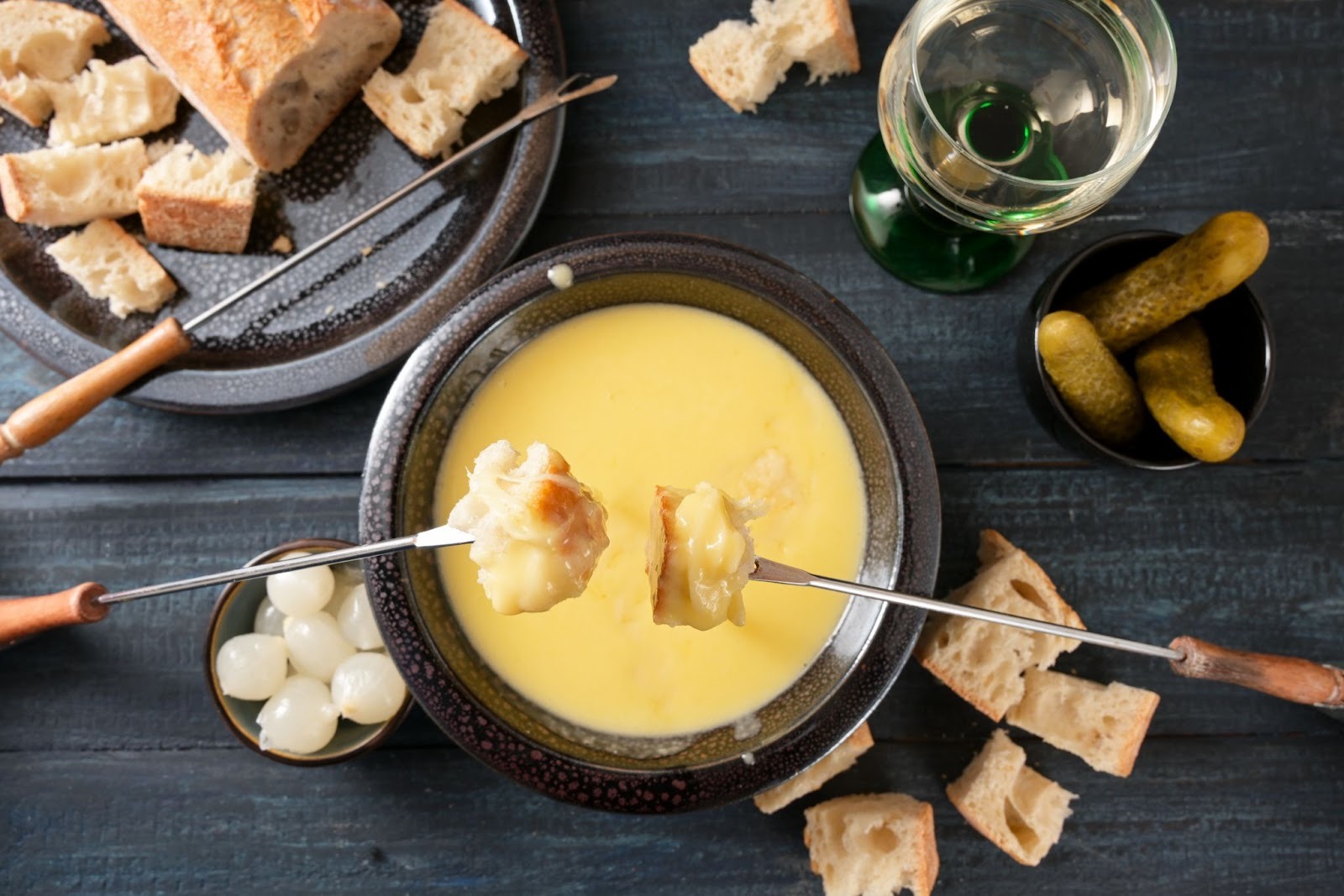
The queen of the night is Kartoffelsalat mit Würstchen (potato salad with sausages). Not poverty, not laziness — strategy. Historically, the 24th was a partial workday and Advent was lean; food had to be fast, so the evening could invest in ritual. Millions still choose it. The dish is the thesis: save the heavy lifting for the 25th.
Raclette and Fondue are the new crowd favorites — low effort, high togetherness. Cheese melts, time slows, conversation expands. No kitchen martyrdom. For blended or international households, it’s culinary democracy: everyone cooks; everyone stays.
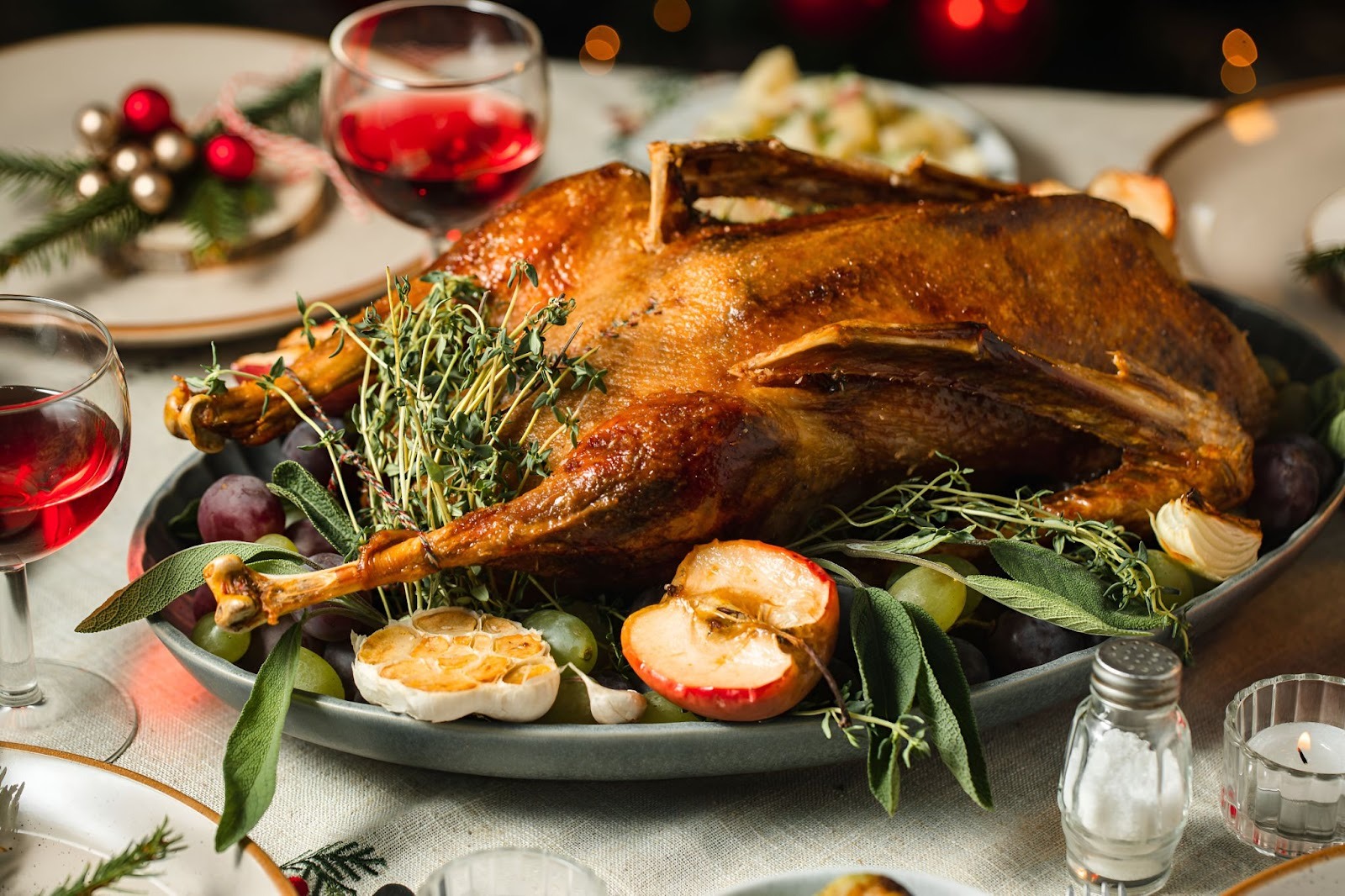
The big feasts land on December 25–26. Goose in much of the West; duck loved in the East; carp (Karpfen blau) in Bavaria/Saxony. Religion, economics, and the Cold War — quietly plated next to Rotkohl and dumplings.
Devil’s-advocate corner: Serve goose on the 24th? Some do. But if you hijack the night with a four-hour roast, you’re competing with the ritual. Cook like you understand time politics.
Germany does silence like a craft. When the room goes quiet, let it. Try a “Frohe Weihnachten” or “Schöne Bescherung” and watch faces soften. Don’t assume English from everyone; minimal German earns maximum grace.
Front-load all logistics by 12:00. Offer useful help (“I’ll own coats + candles + playlist”). Dress up, bring a modest gift, and arrive early. During Bescherung, be present, expressive, and generous. If invited to Christmette, go once — the hush will stay with you.
Plan your season with our German Holiday Guide 2025 (key terms, dates, what Berliners actually do). Lock in the vibe with Christmas In Berlin 2025 (markets, closures, where to eat when everything else is shut). Dress for dignity and actual weather with Berlin Winter Fashion & Wardrobe Essentials 2025–2026 (wool, waterproofs, grip).
Heiligabend isn’t rigid; it’s tender by design. The half-day shutdown, the quick dinner, the bell, the visible gratitude — all of it funnels attention toward one incandescent evening. Learn the rhythm and you stop watching Germany celebrate Christmas — you start celebrating with Germany.
Let A4ord take the grunt work off your list — cleaners before guests arrive, a quick handyman fix for that wobbly chair, pet care while you travel — so you can focus on the ritual, not the rush.
Whether you're moving or settling in Germany, A4ord.de ensures trusted experts are just a click away.